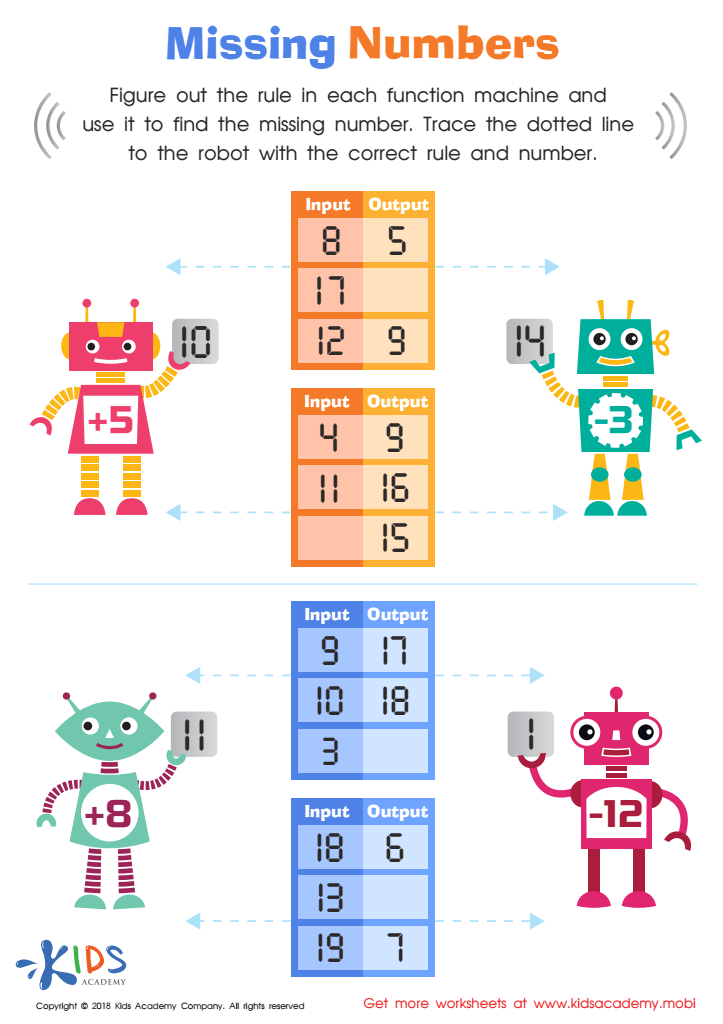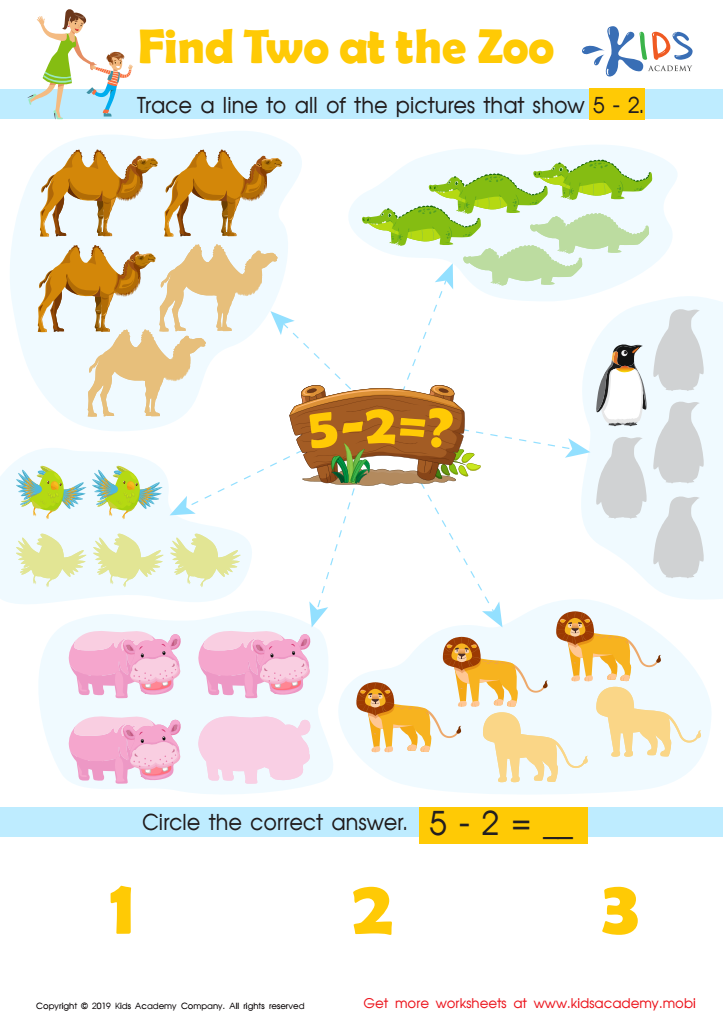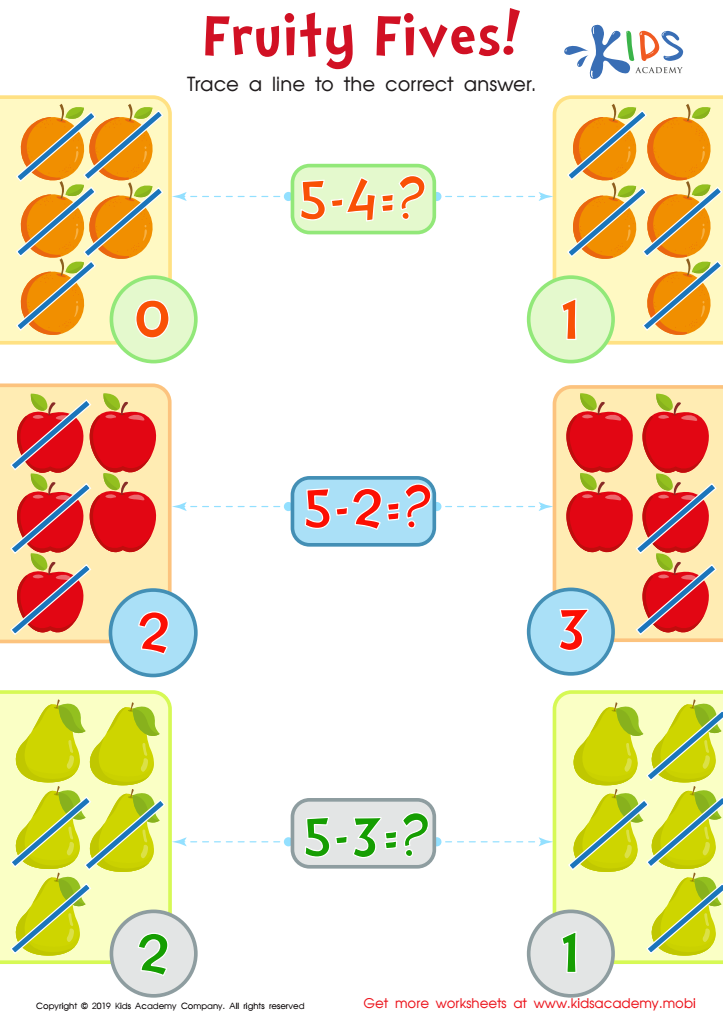Counting skills Extra Challenge Subtraction Worksheets for Ages 3-7
3 filtered results
-
From - To
Boost your child's counting skills with our engaging Extra Challenge Subtraction Worksheets designed for ages 3-7! These worksheets provide an exciting way for young learners to develop foundational math abilities while mastering subtraction concepts. Through fun exercises, children will reinforce their counting, recognition, and problem-solving skills in a vibrant, interactive format that captivates their attention. Ideal for at-home learning or classroom activities, our worksheets promote critical thinking and help kids feel confident in their math capabilities. Explore a wide range of subtraction challenges tailored to young minds, ensuring they are well-prepared for future math endeavors. Let’s make learning subtraction fun!


Missing Numbers Worksheet


Find Two at the Zoo Worksheet


Fruity Fives! Worksheet
Counting skills and understanding subtraction are fundamental concepts in early childhood education, crucial for children's cognitive development. For parents and teachers, nurturing these skills in children aged 3-7 lays the groundwork for future math proficiency. First, counting helps children develop number recognition and the ability to make sense of quantities, which are foundational for more complex math concepts. Practicing subtraction enhances critical thinking, as children learn to identify relationships between numbers and the idea of "taking away."
Furthermore, incorporating Extra Challenge Subtraction activities keeps learning engaging and elevates children’s problem-solving abilities. It encourages a mindset that isn't afraid of challenges, fostering resilience and confidence that can extend beyond mathematics into other subject areas. Research indicates that early mathematical skills are linked to later academic success, making it essential for educators and parents to prioritize these abilities.
Additionally, counting and subtraction skills are often embedded in real-life situations—like sharing snacks or playing games—grounding these concepts in everyday experiences. By focusing on these skills, parents and teachers not only support academic development but also promote lifelong learning habits and happy, confident learners. Ultimately, investing in these early skills is key to unlocking a child's full potential in mathematics and beyond.
 Assign to My Students
Assign to My Students









.jpg)











